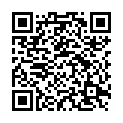|
|
|
| Module code: E2502 |
|
|
2V+2U (4 hours per week) |
|
5 |
| Semester: 5 |
| Mandatory course: yes |
Language of instruction:
German |
Assessment:
Written exam
[updated 08.01.2020]
|
E2502 (P211-0131) Electrical Engineering and Information Technology, Bachelor, ASPO 01.10.2018
, semester 5, mandatory course, technical
|
60 class hours (= 45 clock hours) over a 15-week period.
The total student study time is 150 hours (equivalent to 5 ECTS credits).
There are therefore 105 hours available for class preparation and follow-up work and exam preparation.
|
Recommended prerequisites (modules):
None.
|
Recommended as prerequisite for:
|
Module coordinator:
Prof. Dr. Benedikt Faupel |
Lecturer: Prof. Dr. Benedikt Faupel
[updated 10.09.2018]
|
Learning outcomes:
After successfully completing this course, students will be familiar with the subject-specific terminology of continuous control loop structures and be capable of analyzing the behavior and influencing variables in control loop structures in both the time and frequency domains. They will be able to classify different controller types and design technical components for their implementation. Based on standard setting procedures, they will be able to implement control loop quality requirements for the design of control parameters that they adapt and optimize using simulation models and case studies.
[updated 08.01.2020]
|
Module content:
1. Basics of control engineering 1.1. Control system elements and functional diagrams 1.2. Definitions, standards and nomenclature, difference between regulation/control 1.3. Practical tasks of control engineering in process plants 2. Static and dynamic behavior of control loops 2.1. Response to set point changes and disturbances 2.2. Determining the steady-state deviation for different input signal characteristics 3. Designing, tuning and optimizing controllers in the time domain 3.1. Tuning control loops to a defined damping 3.2. Tuning control loops according to Ziegler-Nicols, / Chiens, Hrones, Reswick 3.3. Tuning according to the T-sum rule 3.4. Tuning according to the modulus optimum and the symmetric optimum 4. Designing, tuning and optimizing according to the frequency response characteristic method 4.2. Tuning according to phase and gain margin 4.3. Tuning controller parameters in a Bode plot 5. Discontinuous controllers (two- and three-position controllers) 5.1. Time behavior 5.2. Optimizing and tuning discontinuous controllers 6. Applications control loop behavior and controller design with MATLAB/SIMULINK 7. Example implementation of software controllers on PLC systems
[updated 08.01.2020]
|
Teaching methods/Media:
Presentation, blackboard, lecture notes
[updated 08.01.2020]
|
Recommended or required reading:
Dorf, Richard C.; Bishop, Robert H.: Moderne Regelungssysteme, Pearson, 2006, 10. Aufl. Föllinger, Otto: Laplace- Fourier- und z-Transformation, VDE, (latest edition) Föllinger, Otto: Regelungstechnik, VDE, (latest edition) Grupp Frieder; Grupp Florian: MATLAB für Ingenieure, Oldenbourg, München, (latest edition) Lutz, Holder; Wendt, Wolfgang: Taschenbuch der Regelungstechnik, Harri Deutsch, (latest edition) Schulz, Gerd: Regelungstechnik, Oldenbourg, (latest edition) Unbehauen, Heinz: Regelungstechnik, Vieweg + Teubner, (latest edition)
[updated 08.01.2020]
|


